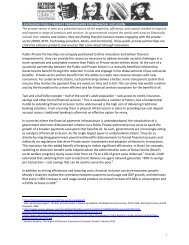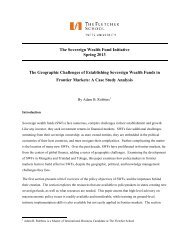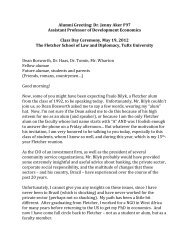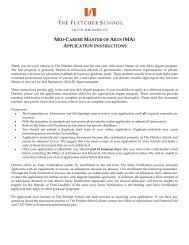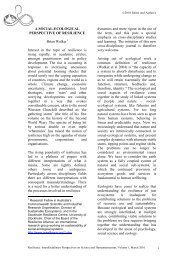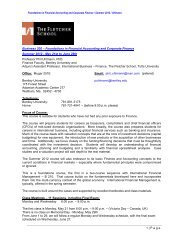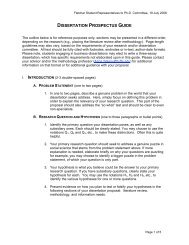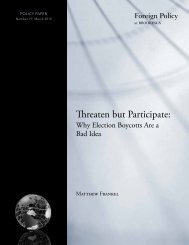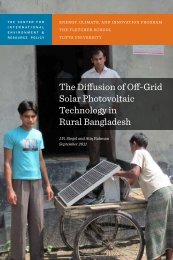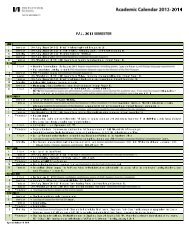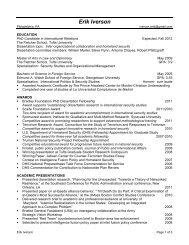creating a mutual Gains climate regime through universal clean ...
creating a mutual Gains climate regime through universal clean ...
creating a mutual Gains climate regime through universal clean ...
Create successful ePaper yourself
Turn your PDF publications into a flip-book with our unique Google optimized e-Paper software.
Creating a Mutual <strong>Gains</strong> Climate Regime Through Universal Clean Energy ServicesSection 1: IntroductionClimate change is one of the greatest global policy challenges of the 21st century.Scientists have reached consensus that warming of the <strong>climate</strong> system is attributableto human actions (IPCC, 2007). The impacts of <strong>climate</strong> change on ecosystemhealth and human well-being and, by extension, on the political, security, economic,developmental, and ethical aspects of international cooperation are well documented(IPCC, 2007), and adverse impacts of a substantially warmer <strong>climate</strong> are expectedto fall disproportionately on developing countries. Failure to reverse the rapid rise inglobal temperature, increases the ongoing damage from <strong>climate</strong> change, requires morefrequent intervention to alleviate acute impacts, raises the costs of adaptation, andincreases the likelihood of major dangerous irreversible changes in the global <strong>climate</strong>system. In light of this, a key question is why have the <strong>climate</strong> negotiations remaineddeadlocked and failed to produce a viable and adequate <strong>climate</strong> treaty? This paper putsforward the argument that, unless the current approach to the problem changes, theprospect of producing an effective response seems bleak.Drawing on <strong>climate</strong> policy scholarship and negotiation analysis, this article firstanalyses why the current approach does not produce an effective <strong>climate</strong> agreement.Arguing that the underlying national interests of most countries are surprisinglysimilar and focus on economic development rather than emissions reductions, it thenasks how to build on each country’s interests to create <strong>mutual</strong> gains outcomes forall parties. As <strong>climate</strong> change is fundamentally reframed as a development problem,a development-based approach to <strong>climate</strong> negotiations is proposed, which puts thechoice of <strong>clean</strong> development pathways and <strong>universal</strong> access to <strong>clean</strong> energy services atthe centre of the discussion. This approach enables parties to address <strong>climate</strong> changecollaboratively, promote the discourse of opportunity, and set foundations for problemsolving for the near- and long-term.2 Center for International Environment and Resource Policy, The Fletcher School, Tufts University



